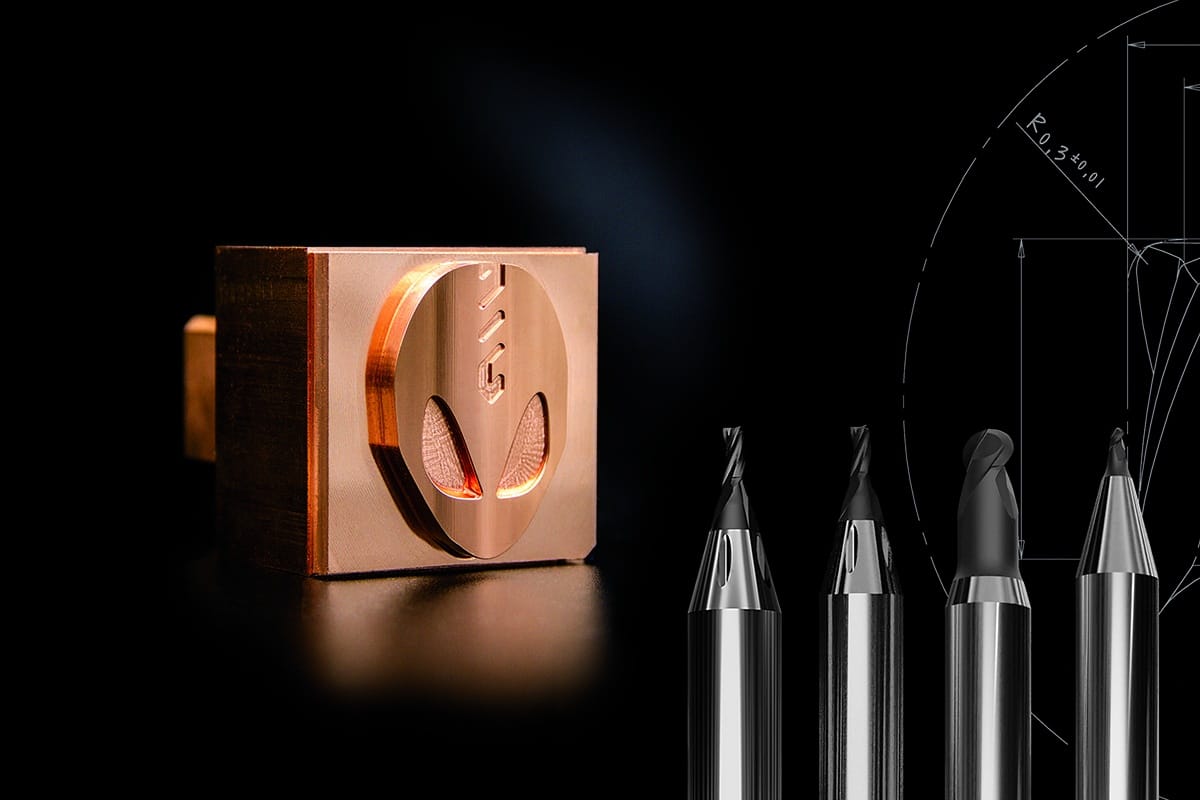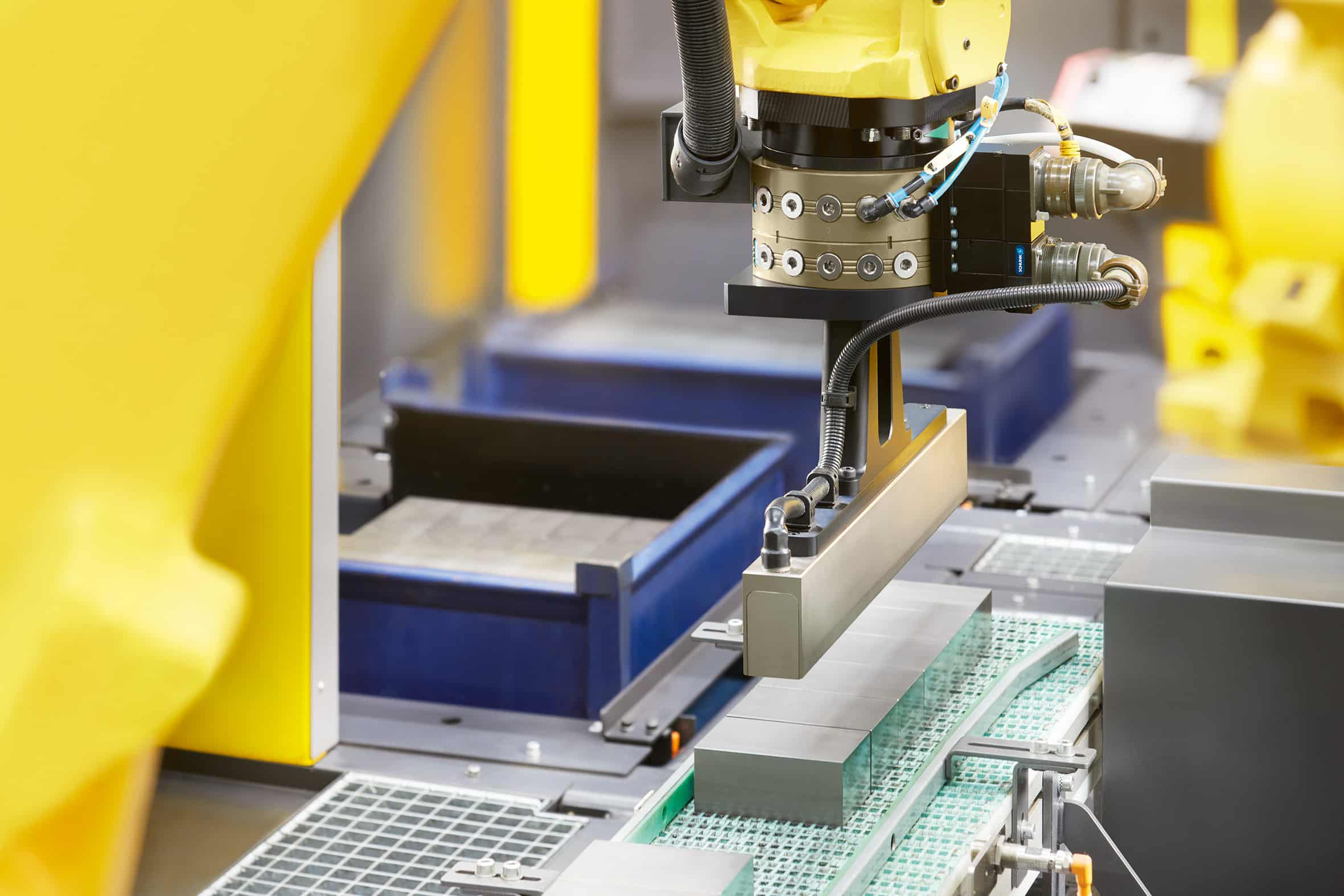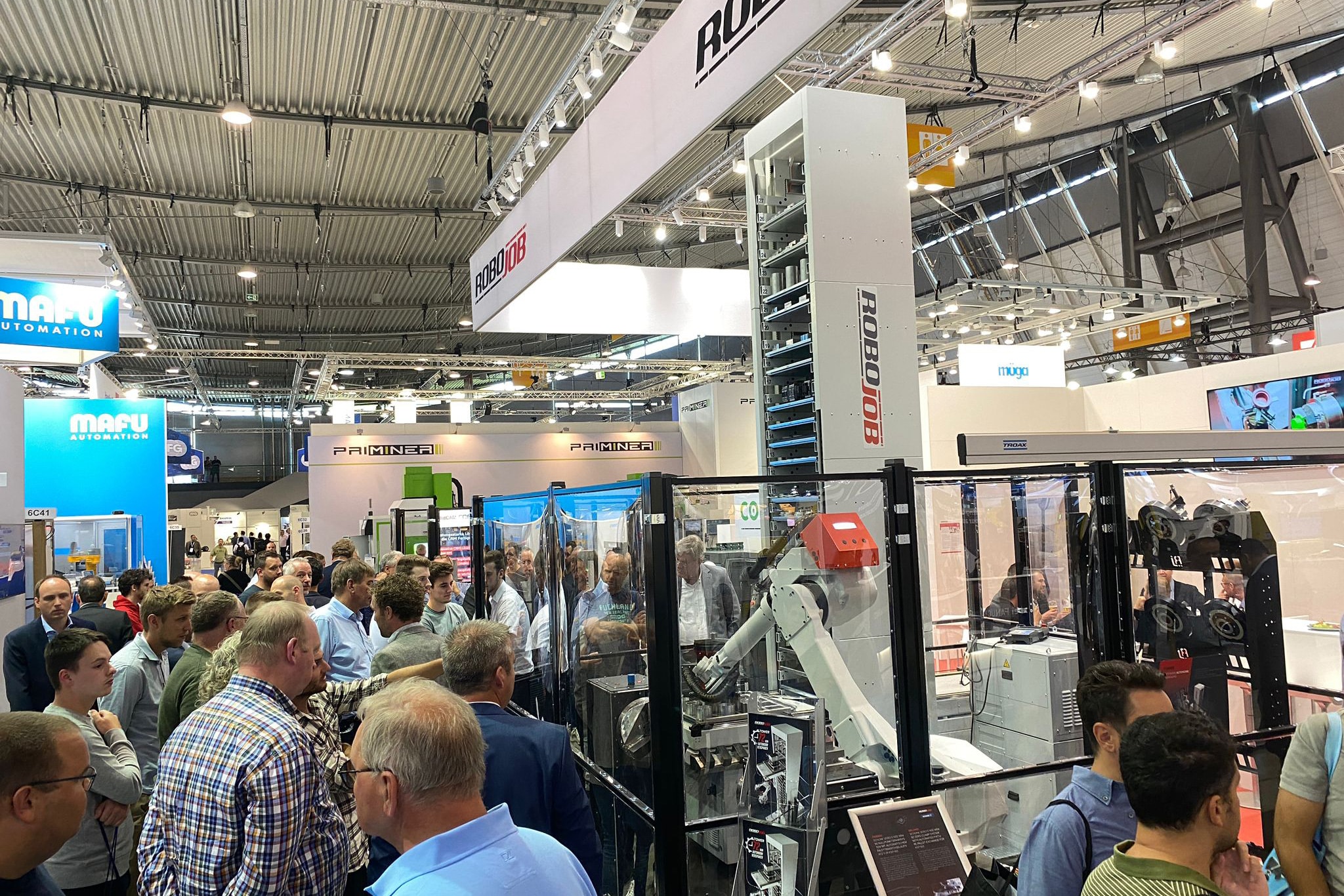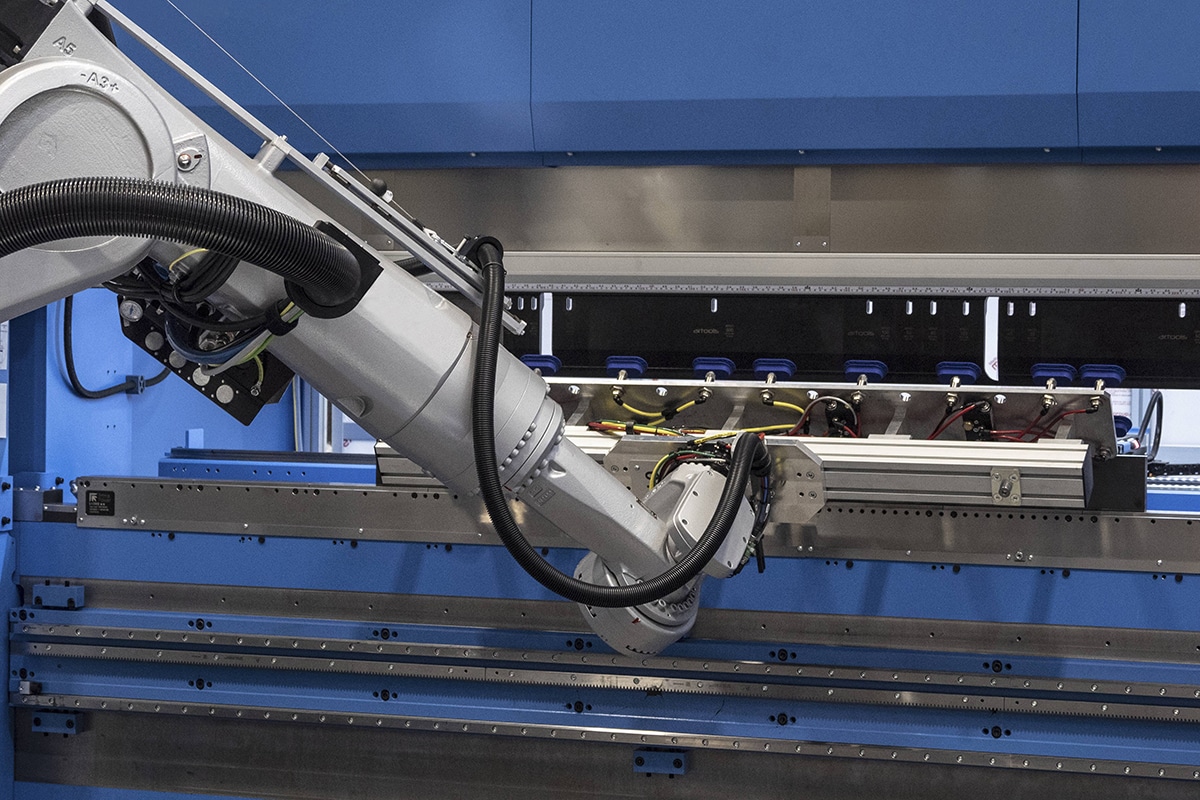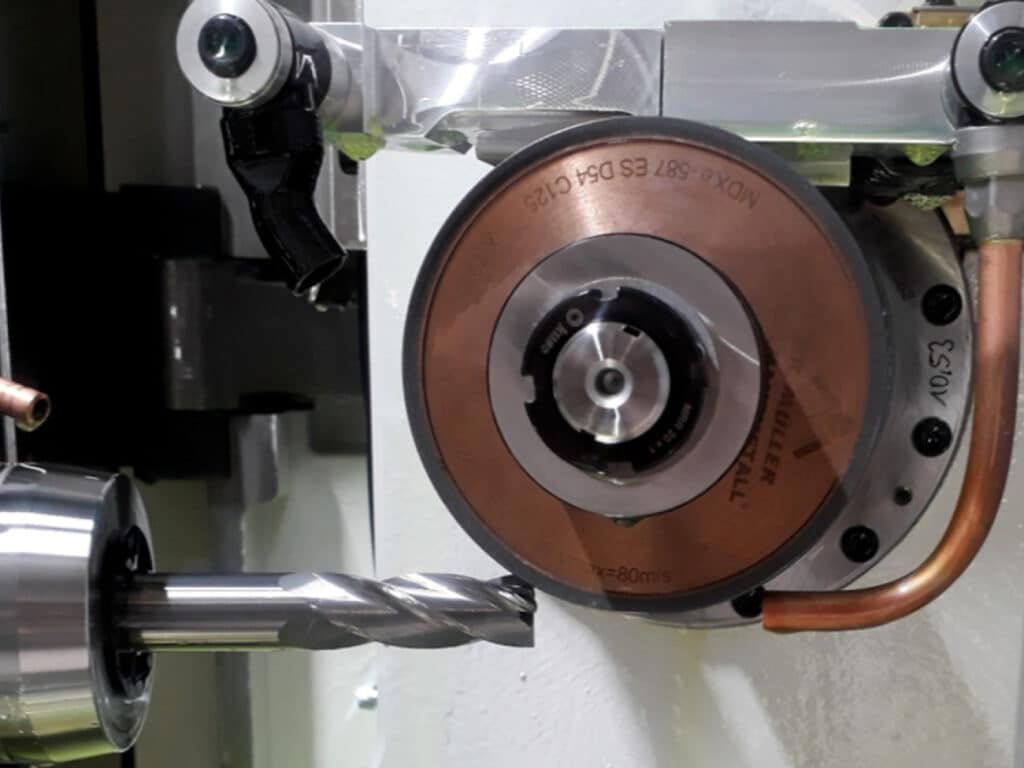
Dialogue between research institutions and industry central to new
trade fair on grinding technology
From May 17 to 20, 2022, Stuttgart will be the mecca of grinding technology and superfinishing. That's when the new GrindingHub trade fair of the VDW (Verein Deutscher Werkzeugmaschinenfabriken) will be held, in cooperation with Messe Stuttgart and Swissmem. The dialogue between science and research will take center stage there, including in the special exhibition area "GrindingSolutionPark.
Prof. Berend Denkena, general director of the IFW (Institut für Fertigungstechnik und Werkzeugmaschinen) at the Leibniz University of Hanover and spokesman for the WGP (Wissenschaftliche Gesellschaft für Produktiontechnik), and Dr. Sebastian Barth, senior engineer and head of the technology planning and grinding technology department at the WZL (Werkzeugmaschinenlabor) of the RWTH Aachen, explain why it is worthwhile to visit this fair.
Why are renowned colleges participating in GrindingSolutionPark?
Sebastian Barth: "Especially the exchange of knowledge and information between research institutions and industry is very important to us. GrindingSolutionPark provides an ideal platform to discover how our research can be translated into industry. It also allows us to find out what challenges industry is facing and how we can tailor our research perfectly to them."
Berend Denkena: "For us, the contacts with companies are a great opportunity to discover future research topics. We can present our projects and innovations and see how we can collaborate with industry."
How important is grinding technology to you?
Berend Denkena: "At IFW, this has been a core theme for years, on which 15 people work today. That is immediately the largest group within the institute. The digitization of the grinding process and the production of tools are central to this."
Sebastian Barth: "Also at the WZL, we have many years of experience in grinding technologies. Points of focus are the economic processing of innovative materials, the targeted and holistic elaboration and optimization of processes, and the digitization of grinding processes with sensors and smart algorithms."
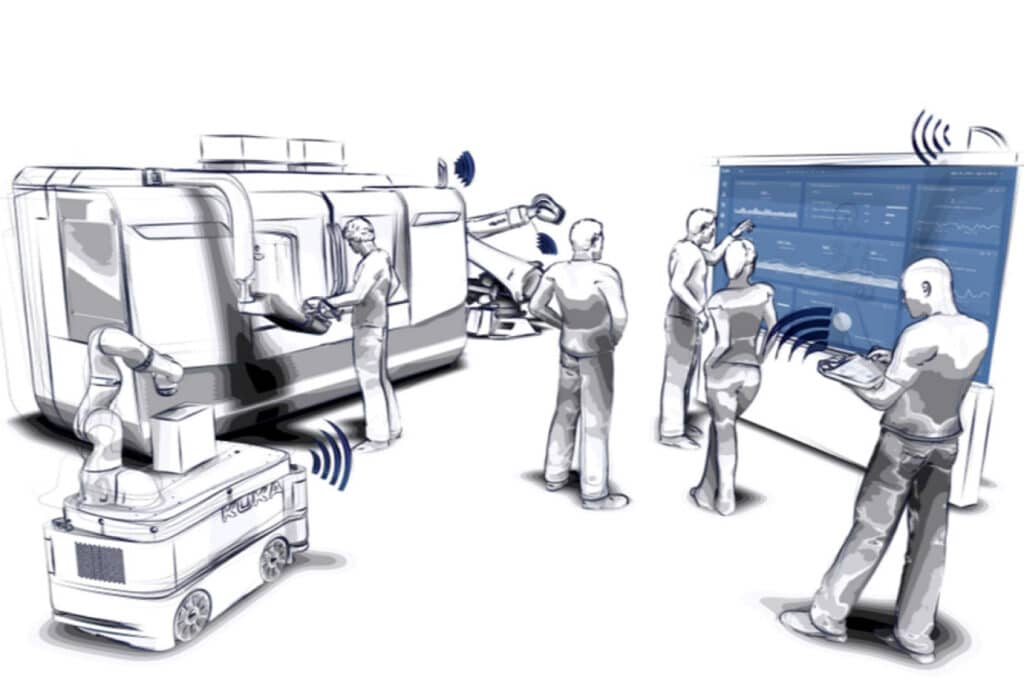
According to the IFW, what are the current trends?
Berend Denkena: "The efficient use of energy and raw materials, for example for grinding tools, is a top priority. It comes down to working out sintering in an energy-efficient way, and for this we have our solutions. We are also making use of additive manufacturing. The IFW uses simulations to design tools so that the subsequent 3D printed shape exactly matches the design specifications. When digitizing the entire production process, simulation is crucial. During GrindingHub, we will show how simulation increases flexibility and productivity on the shop floor."
"Also for certain partial aspects within a production process, for example when grinding tools, we see digitization as the solution. An example: certain forces can push tools away during grinding, reducing accuracy. We show how intelligent process planning and the use of a grinding spindle with sensors can solve this problem."
How do people at the WZL assess the role of digitization?
Sebastian Barth: "Digitalization plays a very big role. I also note that artificial intelligence is applied to predict the result of a process and to keep the quality at the same level, as well as for so-called 'predictive maintenance' of machines. The term 'digital twin' is also well known. The combination of process data and scientific models offers opportunities to evaluate products and grinding processes even better. Even closer cooperation between industry and research institutions will take that potential to an even higher level."
What other trends are you focusing on?
Sebastian Barth: "This is very broad: from the production of surfaces for specific applications, to the machining of innovative and complex materials, such as fiber-reinforced high-performance ceramics or nano-polycrystalline cutting materials. Another emphasis is on the holistic approach to processes, in which grinding technology often plays a decisive role. For a current state of the art on these aspects, visitors can already visit the WZL during GrindingHub."
What would you like to see on GrindingHub?
Sebastian Barth: "I am very curious about the innovations in the field of machines, tools and cooling lubricants, but am also looking forward to the highlights of GrindingSolutionPark and the meeting with the participants of the 'Schleiftagung' organized as part of the GrindingHub. The connection between the two events allows us to face the challenges of today and tomorrow together."
Berend Denkena: "I follow my colleague completely. In addition to the innovative tools, I look forward with interest to the new developments in the field of machine tools, for example solutions for complete machining and automation. Furthermore, my attention is focused on the current state of the art in laser technology for tool manufacturing, for example in the machining of extremely hard cutting edges."
